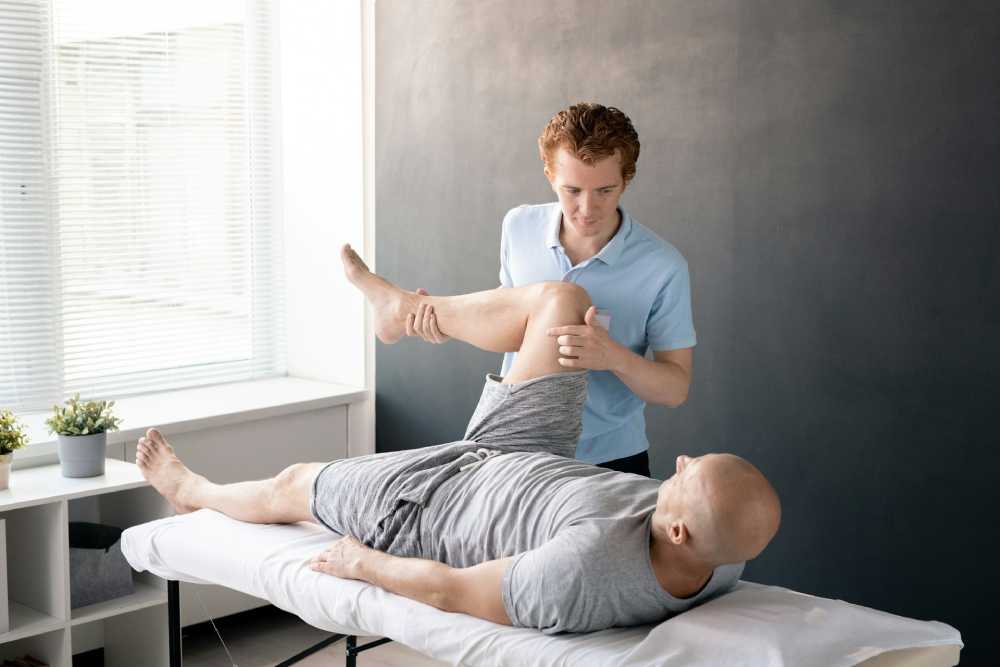Recovering from a traumatic event such as a car accident involves more than just physical healing. It encompasses emotional and psychological recovery as well. An accident can lead to a range of feelings, from depression to anxiety, which need equal attention during the healing process. Seeking help from a distracted driving accidents lawyer can provide legal support while you focus on your recovery. This legal assistance ensures that victims are not overwhelmed by the added stress of navigating legal complexities alone.
It is crucial to recognize that emotional scars can take longer than physical ones to heal. Ignoring them can result in ongoing misery and impact general health. Addressing all aspects of recovery ensures a holistic approach to returning to normal life. A comprehensive recovery plan typically includes medical treatments, emotional therapy, and lifestyle adjustments tailored to the patient’s needs.
Steps for Physical Rehabilitation
Physical rehabilitation is crucial for regaining strength and mobility. After the initial medical treatments, engaging in physiotherapy can help. Treatments such as thermal therapy and exercise routines are instrumental. According to the CDC, personalized care plans can bolster the recovery process. These plans often encompass a range of physical therapies tailored to address specific injuries and promote faster healing.
- Initial Assessment: This is a thorough evaluation to determine the extent of injuries. This step often involves diagnostic tests and physical examinations to create a detailed picture of the patient’s condition.
- Customized Plan: Tailored exercises and therapies suited to individual needs. These plans might include physical therapy, occupational therapy, and at-home exercises designed to restore function and mobility.
- Regular Monitoring: Tracking progress to make necessary adjustments in the therapy. Rehabilitation specialists often conduct periodic assessments to gauge progress and modify the treatment plan for optimal outcomes.
Consistency is key. Regular follow-ups and adherence to prescribed exercises can significantly enhance recovery, reducing the risk of long-term complications.
Managing Emotional Trauma
Emotional trauma can be just as debilitating as physical injuries. It’s essential to address issues like PTSD and anxiety promptly. Mindfulness and cognitive behavioral therapy (CBT) have proven effective. These approaches help individuals process their trauma, develop coping mechanisms, and work towards mental stability.
Joining support groups and engaging in activities that promote mental well-being, such as meditation and journaling, can significantly impact emotional recovery. Open conversations about your feelings with trusted individuals can also provide relief. Support groups offer a platform for sharing experiences and receiving empathy, which can be incredibly therapeutic.
Additionally, incorporating relaxation techniques into daily routines can mitigate stress. Activities like yoga, progressive muscle relaxation, and guided imagery can help manage anxiety and foster a sense of calm.
Professional Help and Therapy
Professional support, whether from physical therapists or psychologists, is indispensable. Engagement in therapeutic sessions can help address both the physical and emotional ramifications of the accident. These professionals use evidence-based practices to aid recovery, ensuring the treatment meets the patient’s needs.
Consulting with specialists ensures that recovery is guided by expert knowledge. Professionals can tailor recovery plans that suit individual needs, facilitating a more effective and quicker healing process. For example, a physical therapist may create a strategic exercise program that targets weakened muscles. At the same time, a psychologist might employ CBT to help manage emotional distress.
Regular sessions with these specialists can significantly improve the quality of recovery. They can provide treatment and education on self-care practices that can support long-term well-being.
Legal and Financial Considerations
Understanding your legal rights and financial options can alleviate some stress. Knowing that you’re supported legally helps you focus on recovery. Consulting with legal professionals can provide clarity and ensure you receive any entitled compensation.
Handling these aspects efficiently can prevent financial burdens from exacerbating the stress of recovery. It’s worthwhile to seek advice on potential compensation claims, medical bills, and employment rights to secure your financial stability during this period. Financial stability is often a neglected aspect of recovery. Still, it is crucial for peace of mind and allowing the patient to focus fully on improving.
Conclusion: The Road to Resilience
Recovery after an accident is a multifaceted process that requires attention to both physical and emotional healing. By seeking appropriate support and making informed decisions, you can navigate your road to recovery more smoothly and build resilience for the future. Each step taken, whether it’s engaging in physical therapy or addressing emotional wounds, is a step towards regaining control over your life.
Remember, each step you take brings you closer to regaining your strength and well-being. Embrace the support around you and prioritize your health as you journey towards healing.




